The Hidden Culprits: Common Home Energy Wasters And How To Combat Them
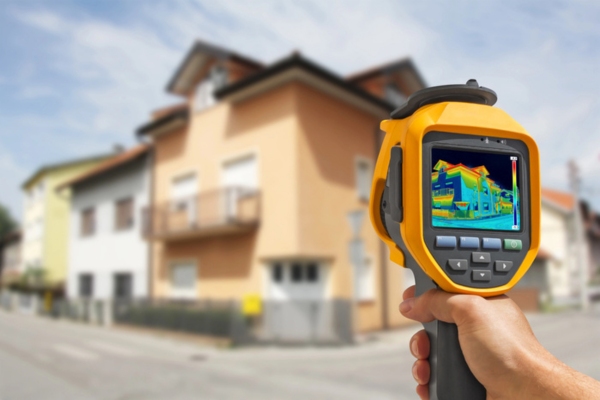
Energy-efficient homes are vital to protecting the environment and cutting household expenses. With rising energy prices and the increasingly visible effects of climate change, minimizing energy wastage is critical. “Hidden energy hogs” describe commonly ignored elements that lead to excessive power use, elevating utility expenses and contributing to heightened energy consumption. Keep reading to explore how to conserve energy at home by addressing these often overlooked areas.
This article from R.F. Ohl assists homeowners in spotting and addressing these prevalent energy leaks, including old HVAC systems, ineffective windows and doors, and more, fostering a more sustainable living space.
Outdated Heating and Cooling Systems
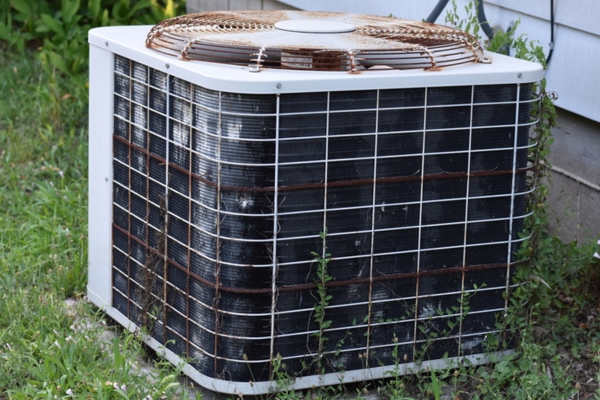
Aging heating and cooling systems are significant culprits in home energy waste, primarily because they struggle to maintain consistent indoor temperatures. Indicators of an aging HVAC system are regular malfunctions, inconsistent temperature control across different areas, and continually elevated energy bills.
Investing in modern, energy-efficient HVAC systems, especially those with Energy Star certifications, provides enhanced comfort, decreased energy expenses, lessened environmental footprint, and many additional advantages.
When selecting a new system, homeowners should evaluate the unit’s efficiency rating, ensure it is appropriately sized for their home, and opt for professional installation to maximize performance and energy savings. Ongoing maintenance is vital to maintain efficient operation and extend the system’s lifespan.
Don’t let your home run out of heating oil. Call R.F. Ohl for timely and reliable delivery services! Call us today!
Inefficient Windows and Doors
Doors and windows are essential in home energy loss, mainly due to air leaks and insufficient insulation. Older windows and doors, particularly those with single-pane glass or poor weatherstripping, can lead to considerable energy wastage. They allow conditioned air to seep out and outdoor air to infiltrate, forcing the HVAC system to work overtime to keep indoor temperatures stable, which escalates energy use and utility bills.
Switching to energy-efficient doors and windows with double or triple-pane glass, low-emissivity (low-E) coatings, and robust seals can significantly reduce energy loss. Such upgrades boost comfort by stabilizing indoor temperatures, decreasing energy costs, and enhancing the home’s overall energy efficiency.
Inadequate Insulation
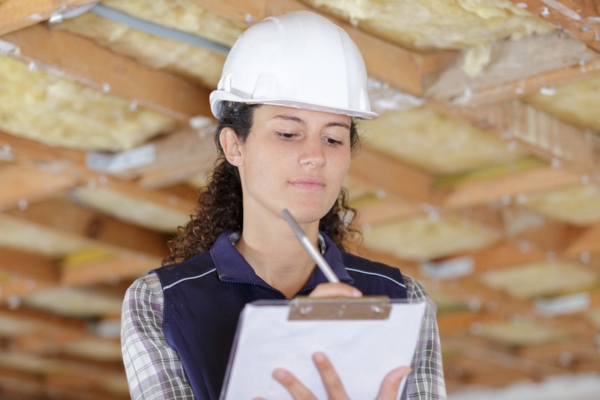
Adequate insulation is essential for minimizing energy waste and preserving indoor comfort by blocking heat loss in the winter and heat gain in the summer. Lack of proper insulation in critical areas such as attics, walls, and floors can result in considerable energy inefficiencies. This causes heating and cooling systems to exert more effort, leading to higher energy bills.
Enhancing or installing new insulation in these critical areas can significantly boost a home’s energy efficiency. Different insulation options, such as spray foam, fiberglass, and cellulose, provide unique advantages. These materials can be applied in various forms, including batts, blown-in, or spray, tailored to the specific requirements and architecture of the home.
Phantom Energy Consumption
Phantom energy consumption, or standby power, is the energy drawn by electronics and appliances when turned off or in standby mode. This frequently unnoticed energy waste source can substantially affect energy bills, representing up to 10% of a household’s energy consumption.
Televisions, computers, kitchen appliances, and chargers that remain plugged in are typical culprits of phantom energy. Homeowners can curb this energy drain by employing power strips to disconnect several devices at once swiftly, unplugging electronics when not in use, and choosing energy-efficient appliances with low standby power usage.
Furthermore, smart plugs and energy monitors serve as practical tools for controlling and minimizing phantom energy usage by providing enhanced oversight and management of energy consumption.
In need of an off-season heating oil refill? Call R.F. Ohl today to schedule a delivery!
Inefficient Lighting
Adopting energy-efficient lighting options like LED bulbs can yield substantial savings in energy use and offer longer lifespans than traditional incandescent and fluorescent bulbs. These older bulb types use more electricity and must be replaced more often, resulting in higher energy costs and frequent replacements.
To optimize energy efficiency, homeowners are encouraged to choose LED bulbs that provide the proper brightness and color temperature for each space and consider options such as dimmability. Installing energy-efficient lighting is simple and typically involves swapping out old bulbs for LEDs or updating fixtures to support this newer technology.
Additional Sources of Energy Waste
Beyond the apparent offenders, numerous other prevalent sources of energy waste in homes can considerably affect efficiency and expenses.
Inefficient Appliances
Aged appliances are typically major energy consumers, using much more electricity than contemporary models. Appliances like refrigerators, washing machines, and dishwashers over ten years old generally need to meet the efficiency standards of today’s newer models. Replacing these with ENERGY STAR-certified appliances can cut energy usage by up to 50%, offering significant reductions in utility bills and a smaller environmental impact.
Poorly Maintained HVAC Systems
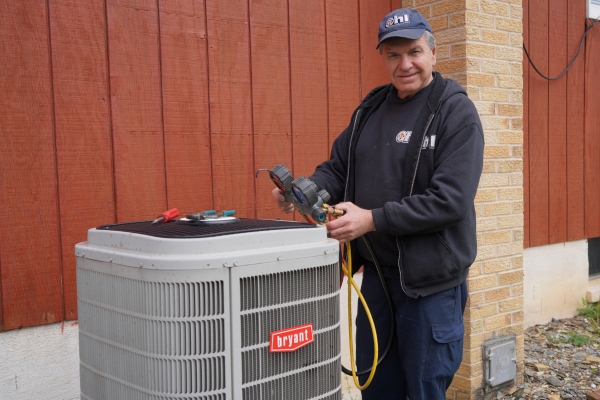
Consistent maintenance is crucial to maximizing the efficiency of HVAC systems and minimizing energy waste. Overlooking essential upkeep, such as replacing air filters, cleaning coils, and examining ductwork, can result in diminished system performance and higher energy usage. By arranging annual professional inspections and adhering to regular maintenance routines, homeowners can ensure their system operates efficiently, extend its service life, and control energy expenses.
Water Heaters
Enhancing water heater efficiency is a crucial tactic for reducing energy waste. Insulating the water heater tank and adjacent pipes helps decrease heat loss, enabling the system to retain the set temperature using less energy. Adjusting the thermostat to 120°F can also prevent unnecessary heating and conserve energy. For improved efficiency, homeowners might consider switching to tankless or high-efficiency water heaters.
Thermostat Settings
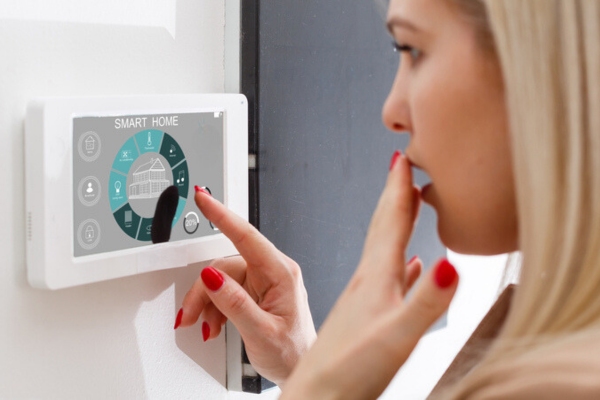
Optimal thermostat settings are vital for efficient energy use. Adjusting thermostats to energy-conserving temperatures—68°F in winter and 78°F in summer—can significantly decrease energy usage. Programmable or smart thermostats let homeowners automatically set temperatures according to their daily routines, promoting energy efficiency without compromising comfort. These devices can also learn household habits and refine settings for maximum energy savings.
For emergency heating oil deliveries, call R.F. Ohl! Our services ensure your home remains comfortable all year long. Contact us anytime!
Energy Conservation at Home
Energy conservation is essential for lowering utility bills and reducing environmental impact. By implementing effective strategies, homeowners can improve comfort, save money, and promote sustainability.
- Heating and Cooling: Efficient heating and cooling are crucial to conserving energy. Maintaining thermostats at 68°F during winter and 78°F in summer helps reduce energy consumption. Programmable thermostats enhance this efficiency by automatically adjusting settings according to set schedules. Routine HVAC maintenance with R.F. Ohl ensures optimal performance and reduces energy wastage.
- Appliances and Electronics: Disconnecting electronics when not in use and utilizing power strips can significantly reduce energy waste. Investing in ENERGY STAR-certified appliances also leads to significant savings, as these devices use up to 50% less energy than traditional models.
- Lighting: Transitioning to LED bulbs is a powerful method for energy conservation, offering lower energy usage and extended lifespans. Enhancing natural light and ensuring lights are turned off when not necessary also helps decrease energy consumption.
- Water Usage: Reducing water consumption also conserves the energy needed to heat it. Installing low-flow fixtures, repairing leaks, and adopting water-efficient habits like taking shorter showers and only running full loads in washing machines and dishwashers have a significant impact.
Insulating homes, sealing air leaks, and installing energy-efficient windows and doors can also result in additional energy savings. Utility companies and government agencies offer incentives and rebates for energy-efficient upgrades, which can help defray the costs of upgrades and yield substantial long-term savings.
Conclusion
Addressing and mitigating typical sources of energy wastage in homes—including antiquated HVAC systems, inefficient windows and doors, inadequate insulation, phantom energy use, and outdated lighting—can considerably lessen environmental impact and energy expenses.
It is essential to prioritize energy efficiency via consistent maintenance, upgrade to energy-efficient appliances and fixtures, and cultivate energy-conserving habits. Homeowners are urged to take active steps and learn how to conserve energy at home and improving their homes’ energy efficiency, which benefits their finances and the environment.
Contact R.F. Ohl for Comprehensive Home Comfort Solutions
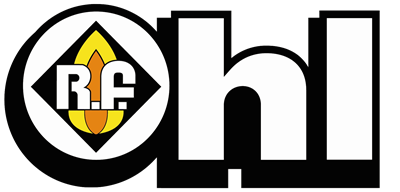
Contact R.F. Ohl for reliable and competitively priced heating oil. Our prompt and courteous delivery service ensures you receive high-quality oil without delay. We also offer efficient heating solutions tailored to your home and family’s needs.
Our skilled technicians are ready to handle all HVAC repairs and maintenance tasks. Reach out to learn more about our comprehensive services. We’re here to address any questions or concerns. For further details on our efficient HVAC services or oil deliveries, call R.F. Ohl today!
Call us today to learn more. Click here to contact us or call us at (610) 377-1098 to contact us today! Click the link to view our service area.
Related Articles:
Posted in Energy Efficiency • Tags:
